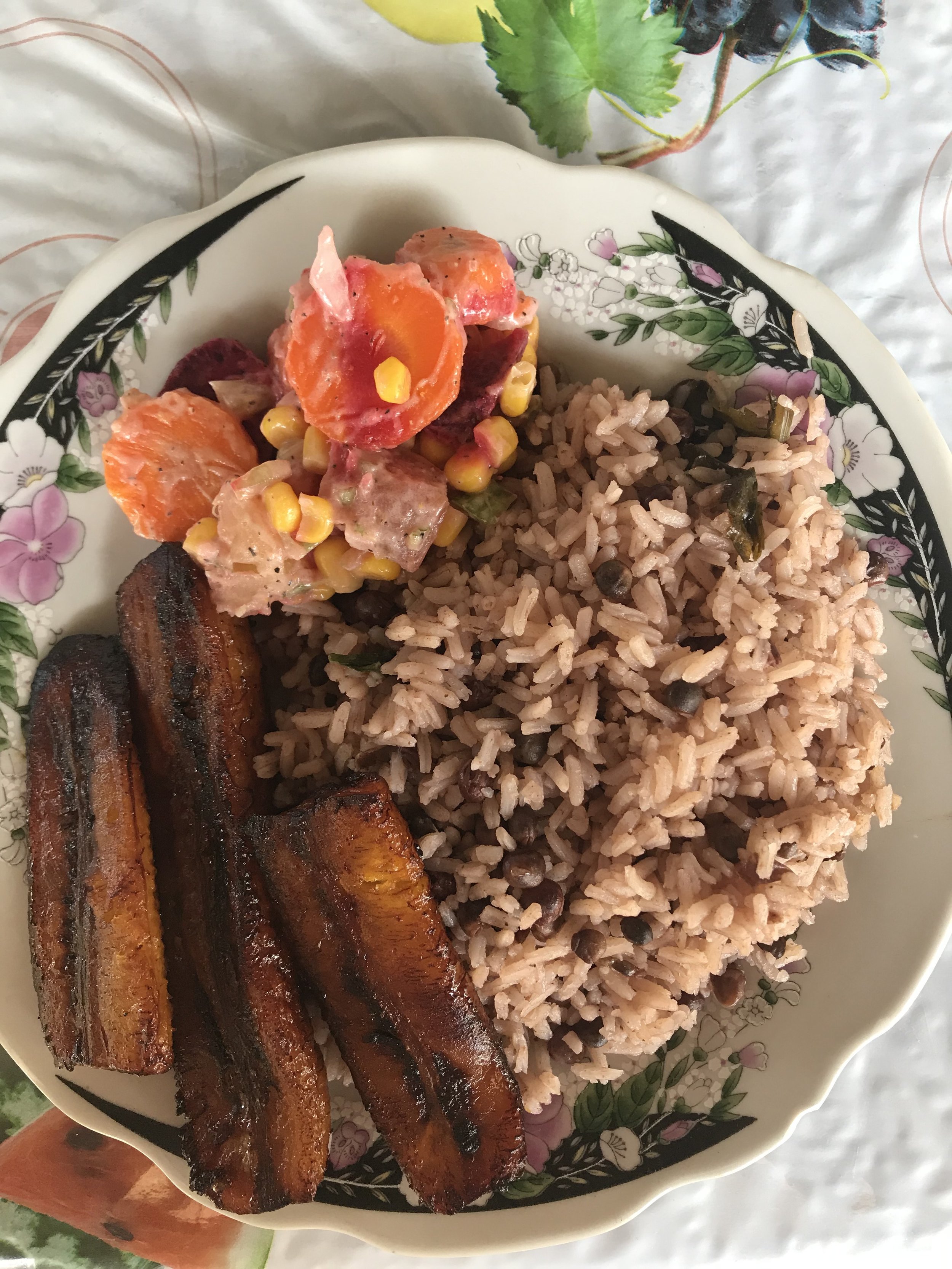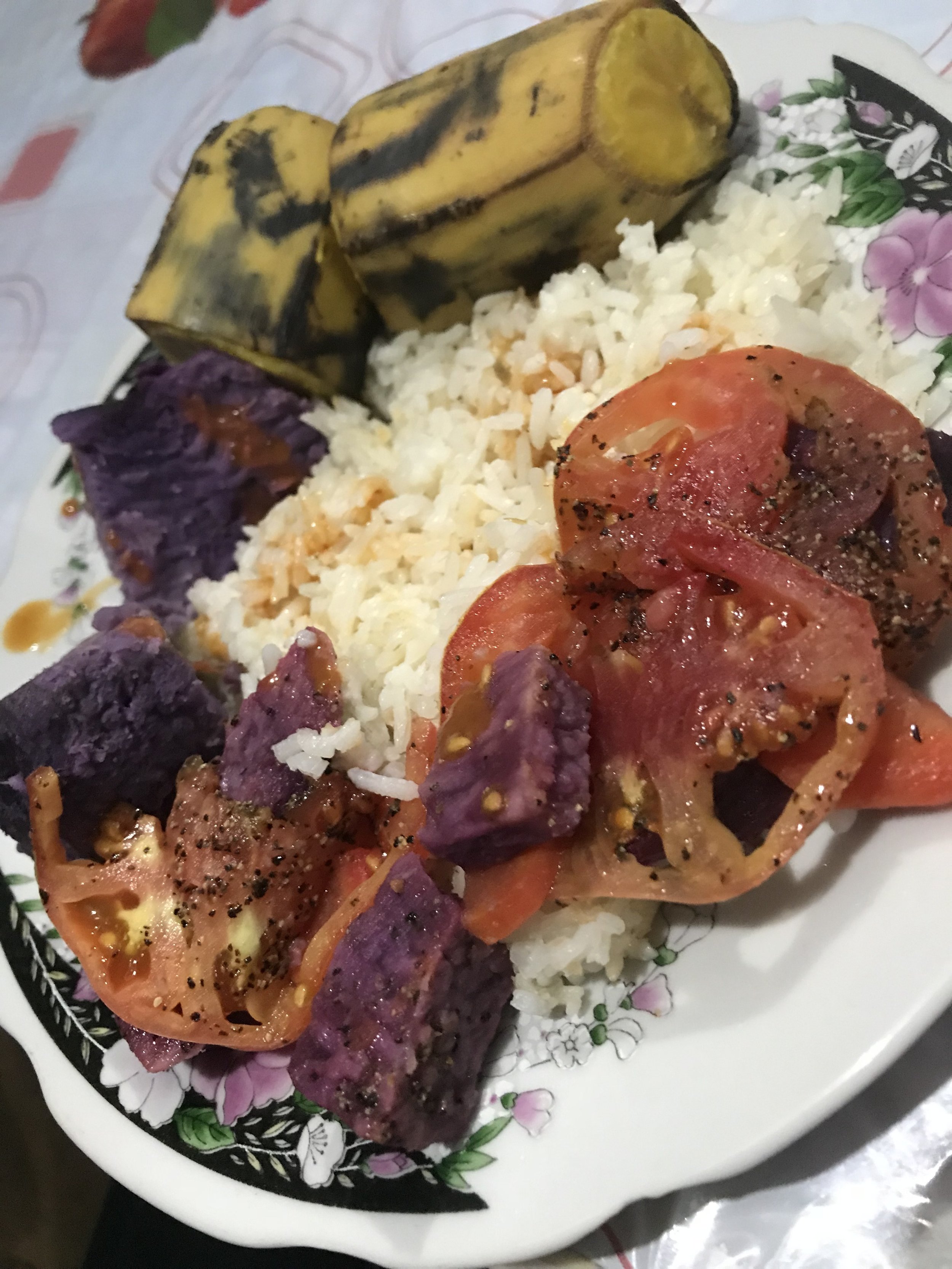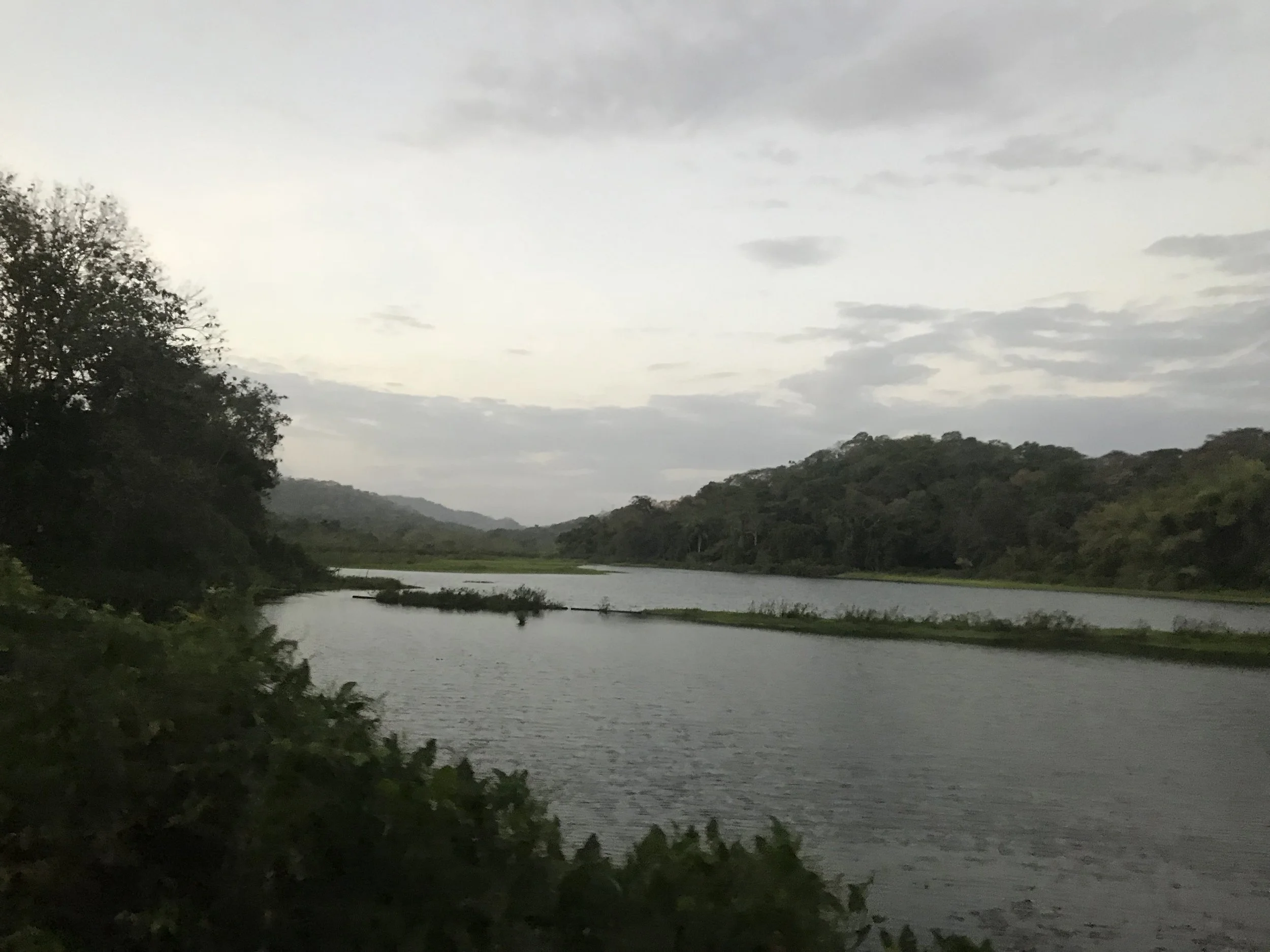I've been waiting to write this post all week, and I'm happy to do so while listening to the Les Miserables soundtrack in a hammock on the patio of my host mom's house.
Some of the most common questions I'm getting about my service now that I'm actually here have to do with me being vegan:
"What do you eat?"
"Are you still vegan?"
"Don't you feel like you're missing out by not eating all of the Panamanian food?"
"Do you just eat rice?"
I'm happy to report that I'm happy, healthy, and well-fed here; but let's get into some of those questions anyway.
Firstly, let's go ahead and define veganism, because no one actually knows what it means! Being vegan is not a diet. Veganism is a lifestyle based on the belief that all sentient beings (human and non-human animals) have autonomy, meaning that those who practice veganism minimize the impact they have on sentient beings in ways that are accessible to them.
Important words/phrases here are autonomy (freedom from external control or influence), minimize impact (because no one is perfect, not even Morrissey), and accessible (because not everyone has access to all of the same products, information, time, etc.).
Veganism is not a diet. It's not an environmental pledge. It's not a health fad. It's a moral philosophy regarding the well-being of all beings. Does it have some wonderful benefits to your health, the environment, and quite possibly your budget? Absolutely! However, at it's core, being vegan is about kindness.
Now that we've got that out of the way, I can talk liberally about being vegan in Panama, as compared to the United States. Honestly, so far, it's been remarkably similar.
FOOD
Vegans strive to reduce the amount of animal products in their diets. This includes all flesh, dairy, eggs, gelatin, bones, oils derived from animals, etc. If it has a part of an animal in it, or was made with animal parts but doesn't actually contain them (stock/broth, some beer), it's not considered vegan. Keeping this in mind, I'll share that Panama is a culture full of fried food, seafood, and seemingly lots of meat (chicken). Many of the people in my host community keep their own chickens for eggs and meat (this is personally a bit hard for me to be around, but I have my own ways of coping with that).
Luckily, Panama's climate is excellent for growing abundant amounts of fruit and veg. For example, I have mangoes, oranges, guanabana, and ñame growing at my host mom's house currently. Throughout the community I live in, there is yuca, plantains, cucumbers, peppers, bananas, papaya, pineapple, and many other yummy plants growing in people's yards or very nearby. Corn and rice are staples during almost every meal here, as well, so there's plenty to eat. When people jokingly ask me, "Do you just eat rice all the time?" I always answer, very seriously, yes. Because everyone here eats rice, all of the time.




My host mom cooks every single meal for me (unless I explicitly ask to cook for us, but even then she still cooks). While she understands that I can't eat meat because it makes me sick, and that I don't like dairy products and eggs, there have definitely been some misunderstandings! For instance, she makes my toast with butter in the morning; when I noticed this, I just asked her to use oil instead to toast the bread. She likes to make creamy salad dressings with mayonnaise; no matter how many times I tell her that mayo has dairy and eggs in it, she still serves it to me. I compensate by taking a smaller portion of those parts of the meal when this happens. She fries a lot of the vegetables we eat in the same oil she fries fish and chicken; this drives me absolutely insane because it makes the vegetables taste like meat. I honestly don't know how I've been able to tolerate it, but I just try to douse my veggies in Picante Sauce and not think about it.
It's typical for my host mom to eat exactly what I eat at meals, but with a piece of chicken or fish added to her plate. Other than that, our meals are identical. In the mornings, she usually has fruit and toast with me with coffee and tea, and doesn't even eat animal products.
The point isn't to be perfect, and it isn't to inconvenience the woman that has opened up her home to me for three months; the point is to do what I can with what I have. Food to accommodate a plant-based diet is extremely accessible here, and were I to be living on my own and cooking for myself like I usually do at home, I would be living just the same as I did in the States (but maybe minus the home-made vegan cheese).
Grocery stores and even the smaller tiendas here have plant-based food options, whether it's as basic as rice, beans, and canned veggies or as involved as buying organic produce and whipping up a vegan stuffed shells with lentil meatballs and dairy-free white wine sauce. I have access to both ends of that spectrum, and will happily continue eating as plant-based as is possible while I'm here.
PRODUCTS
This category encompasses buying cruelty-free, fair trade, free-from-animal-ingredients products for cleaning, bathing, etc. My personal preference is to purchase products that meet all three of the above criteria, and if possible, are produced by a company that's on the eco-friendly side as well. This one has been a bit more complicated than managing food.
Cruelty-free products here in Panama are somehow even more expensive than they are in the U.S. I somewhat reluctantly coughed up $27 for a stick of deodorant, a 12 oz. bottle of shampoo, and 10 oz. of face wash last weekend (and I don't even like the face wash) in order to meet my standards for products like these (I'm going to learn how to use everything in great moderation during my time here, if I want to be able to afford these things).
I would not argue that these products are accessible at all, based firstly on their cost, and secondly on where you can buy them. They're not easy to come by; I only found them in a grocery store in Panama City. I strongly doubt I would be able to find products like these in a local store of any kind.
A great alternative that I plan to experiment with once I'm at site is making my own products. While I envision storage of home-made toiletry and cleaning products being difficult due to the heat and humidity in Panama, it might be something worth exploring to keep down on cost and minimize my need for non-vegan alternatives. If all else fails, I'll expect care packages containing Alba Bontanica face wash and Shea Moisture shampoo and soap from you all.
ANIMAL RIGHTS
This one requires some seriously deep breaths. I can't really practice activism here, nor would it be appropriate for me to do so. While I gladly show up to protest circuses and zoos in the States, won't hesitate to tell people that raising their own chickens doesn't make slaughtering them less cruel, and loudly voice my opinions about the use of horses for touristy-transportation in downtown Grand Rapids, I have to keep my mouth shut here.
The people in rural Panama are living in very different circumstances. That's the beginning and end of it. I can't tell them that taking eggs from chickens is exploitative and that killing their birds and pigs is inhumane, because that's how they supplement their diets with the resources they have.
Do I believe that most people here could live plant-based in a rural community? Absolutely, 100%.
Is it my place to say so, being a member of the Peace Corps and a guest in their home? Nope.
Is that hard as hell to deal with on the daily? You bet it is.
Additionally, many people here with pets treat their pets horribly. The dogs and cats aren't fed or bathed, there are strays with mites and fleas and skin diseases, they steal baby parrots out of nests in trees and keep them in wire cages for the rest of their lives...domesticated animals here are not treated well. It's a different culture that I just don't understand well enough to confront though. Maybe at some point during my service this will be an area of animal welfare that I can tackle, but not yet.
Being an outspoken animal rights advocate in rural Panama is a constant test of my patience and a continuous battle of the head and the heart. It's hard to have unpopular opinions no matter where you are, but I would say that my anxiety related to coping with my opinions has increased here.
OVERALL, being in Panama is a beautiful experience, and I haven't had to adapt much of my vegan lifestyle from the States at all. It's definitely true that I've been forced to become more tolerant to certain behaviors and more creative with expressing why I choose to live the way I do, but I'm still living my best [vegan] life here. For me, it's really the only way to live.
Intentionally & Compassionately,
Hannah
